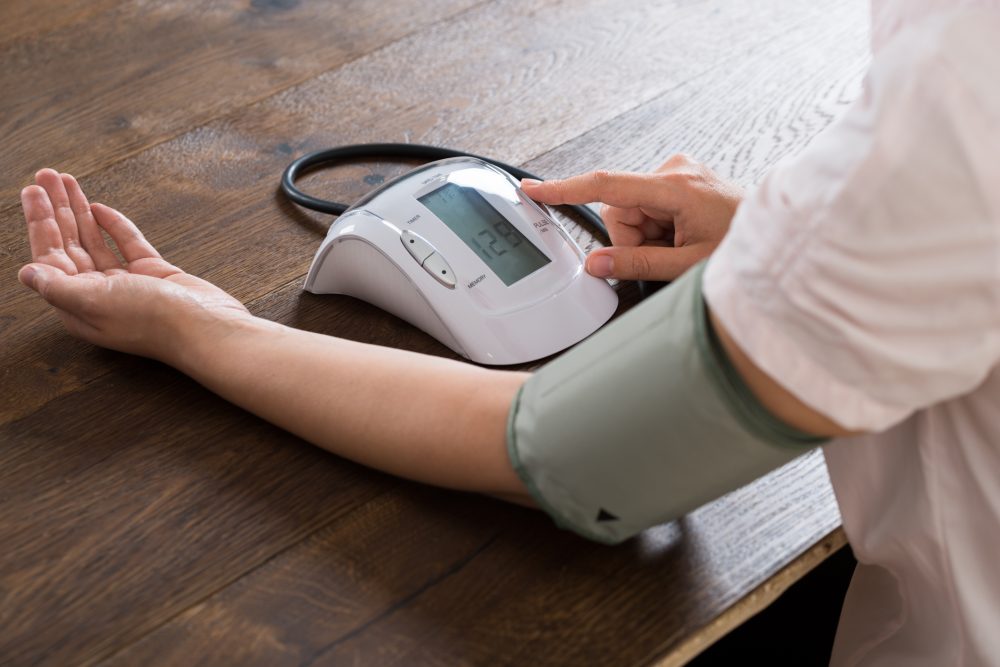
It’s a common condition but if left untreated, hypertension or high blood pressure (BP) can lead to serious complications. Mount Alvernia Hospital based kidney and hypertension specialist Dr Stephen Chew bares the facts.
“Hypertension is a ‘deceptive disease’ It does not mean that the higher your blood pressure, the more discomfort or obvious symptoms you will experience,” Dr Chew cautioned. “You can have a high blood pressure (BP) but still feel perfectly all right. But it does not take away the injury to your vital organs or the adverse impact that hypertension is causing your body in the long term.”
The point is: Do not rely on symptoms because hypertension is one of the classic a-symptomatic conditions that can hit you with no obvious signs. Though dizziness and aches are some common symptoms of a hypertension condition, these are not specific and can be indicative of other medical conditions.
The normal range of human blood pressure is 140 (systolic)/90 (diastolic) so anything above this reading is considered hypertension. Stress and tension can cause temporary increase in blood pressure, but for the most part, hypertension tends to be a medical condition that afflicts people above the age of 40.
Even for people whose BP readings are within the ‘acceptable’ range, there is a subgroup of patients people with diabetes, protein in their urine, patients with chronic kidney dysfunction or those with existing cardiac conditions where a BP reading of 130/80 is considered high because their threshold to internal injury is much lower.
Vigilance
Though hypertension is not a reversible condition, it can be controlled and maintained with medication and appropriate lifestyle intervention. Dr Chew said that if done well and consistently, hypertension will not affect a patient’s daily life.
The doctor’s advice: even if you have no obvious symptoms or discomfort, develop a habit of doing regular self-monitoring of your BP at home once a week instead of waiting till the next clinic visit or medical appointment.
“Regular measurement of your blood pressure at home using a portable blood pressure monitor is better and more effective at managing hypertension than one taken during a single clinic visit,”” said Dr Chew.
Such vigilance may be well worth the while. Although hypertension is not immediately life-threatening, it is a high risk factor that can lead to serious illnesses like renal failure and cardiac diseases, if left untreated.
Dr Chew added that sometimes, blood pressure can rise to a very high level before it is detected because the patient experiences no symptoms. When that happens, medications have to be given to keep the condition under control and prevent further injury to the organs.
Treatment
Since hypertension is often associated with a cluster of co-existing problems, the treatment of hypertension does not only involve lowering the blood pressure it is also important to reduce other risk factors that jointly contribute to the consequences like cardiac diseases and renal failure, or those that add up to cause injury to the body. These include controlling the blood sugar level, cholesterol and uric acid.
And what can you do to reduce the risk? Plenty – watch your diet, reduce obesity, exercise and adopt a healthy, smoke-free lifestyle. It also helps to be proactive take an interest in your own health by doing measuring your BP regularly with a home – use blood pressure monitor, go for regular health checks, and take your hypertension medication as prescribed.
Dr Chew sums up the battle plan with three key approaches: Prevention, Early Detection and Intervention. ”It is possible to achieve control over your medical condition,” he assured.
Article contributed by Dr Stephen Chew, an accredited doctor of Mount Alvernia Hospital.
Note : Please note that health information is provided to supplement the care provided by your doctor. It is not intended nor implied to be a substitute for professional medical advice. Always seek the advice of your physician if you have any questions regarding a medical condition.